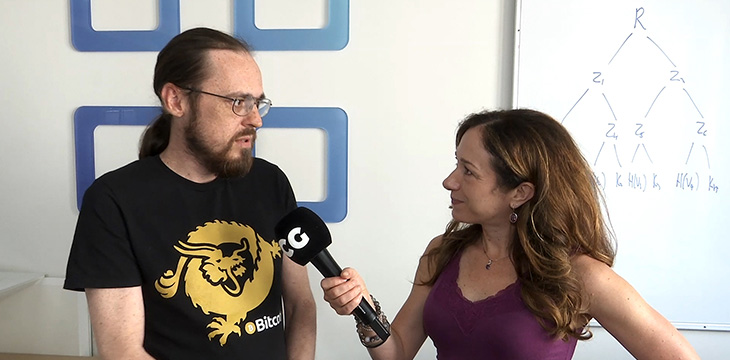
The Quasar protocol upgrade is set to unleash new limits for the Bitcoin SV (BSV) blockchain on July 24, increasing the maximum Bitcoin block size to 2GB. To explain the ramifications of this update, Steve Shadders, chief technology officer of nChain, joined CoinGeek.com’s Becky Liggero.
An important thing to recognize with Quasar is that it is an important step in Bitcoin’s path to returning to its original vision and protocol. “It’s kind of a preparation for the Genesis upgrade next year, so the key change in this particular protocol upgrade is a change in the default block size,” he said. “The default is being raised from 128MB to 2GB. Miners, however, are intending to manually set the limits, their own hard caps, to 512MB.”
Liggero asked why miners would opt to set a lower maximum cap limit on their blocks. “Simply because it allows the miners flexibility to exercise the governance role that they’re supposed to play in the Bitcoin block size,” Shadders replied. “The instances of Bitcoin SV that are not actually involved in mining, we refer to them as blockchainers, because they don’t actually write the blockchain, they don’t really have any influence over the maximum size of blocks that are being mined, but they still have this limit in place temporarily, for another six months or so, that governs what they will accept.”
Allowing the miners, rather than developers, to indicate their block size preferences is part of what Satoshi Nakamoto originally envisioned. “It allows the miners flexibility to raise their limit later on from 512MB to 1GB, or 1.5GB, or any number in between, and all of the other listening nodes are going to accept those blocks,” Shadders explained. “So it’s very important, I think, from a cultural perspective in Bitcoin because what we’re trying to do is shift the responsibility for block size governance away from developers and put it into the hands of miners.”
As Bitcoin moves towards its Genesis upgrade, Quasar will help miners re-learn the skills they need for the ecosystem. “So there will be two potential consequences of this,” Shadders offered. “The first I mentioned before which is the miners beginning to take a very active role in choosing the maximum block sizes they accept. But also, as miners start to do that, until they get kind of into the perfect sync on the next number up, what we will start to see is more orphans on the Bitcoin blockchain.”
Orphan blocks have been a bit of as sticking point, as the cryptocurrency world has come to assume that they indicate a problem; but that’s simply not true. “This has been something that’s traditionally been considered to be a bad thing in the history of Bitcoin, but it’s a bit of a misunderstanding because the simple fact that orphans can occur is actually a part of the core design,” he explained. “It’s the disincentive for Miners not to be in sync with other miners, it’s the disincentive for them to be recalcitrant about upgrading their hardware, their capacity, etc. So the whole ecosystem needs to kind of start getting used to the fact that this is a normal part of Bitcoin life.”
The important thing to not forget though is the new capabilities Quasar will unleash for Bitcoin. “We’ve taken away all the barriers to potentially being able to break the 1GB block limit,” Shadders said. “We’ve already seen blocks greater than one gigabyte. That’s a huge milestone because it’s a thousand times the limit that the other Bitcoins are working with. And it really shows that Bitcoin can actually scale.”
That ability to scale the blockchain, and become the public data ledger that big enterprises need to evolve their business models, will be a game changer, and what Bitcoin was always meant to do. “I think big data transactions we’re always meant to be part of the way that Bitcoin works,” Shadders concluded. “Satoshi’s original design allowed for 4GB transaction, a single transaction, not even a block. So being able to handle that kind of scale, volume of data, is just one of the requirements of Bitcoin.”

 09-20-2024
09-20-2024


